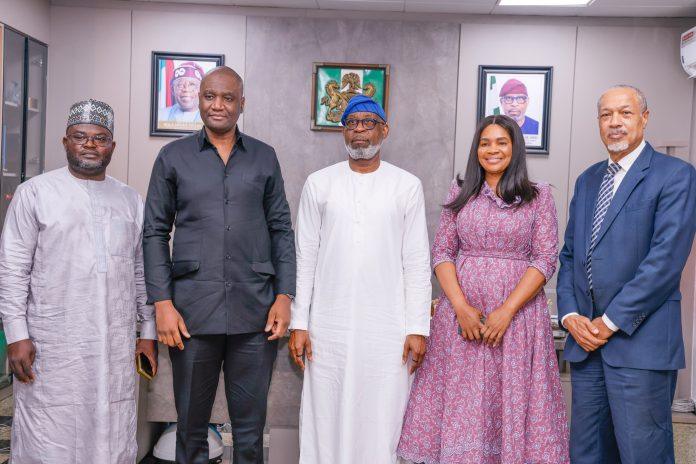Udo Udoma, Nigeria’s minister of budget and national planning, Tuesday drew attention to the dangers of uncontrolled population growth on the economy and emphasised the need to generate national support for measures that can help moderate the rapid rate of population growth in the country.
Udoma who chaired the session on “Sustainable development” at the 58th Annual General Meeting of the Nigeria Bar Association holding in Abuja, said that current estimates suggest that more than four million people are being added to the country’s population every year.
Pointing out that the figure is comparable to the population of many large cities or those of small African countries, the minister stressed that if the country is to fully achieve the objectives of the Economic Recovery and Growth Plan (ERGP), which is to invest in the Nigerian people; expand social inclusion; create jobs and develop human capital, then it has become imperative that new ways to better manage the rate of population growth be fashioned out.
Citing the China example, the minister said managing population growth is an important part of any strategy to achieve sustainable economic development.
He disclosed that that his ministry, working with the health ministry, has been given the responsibility by Strategy 46 of the ERGP to develop policies to help manage the country’s rate of population growth.
“Let me say, so that I am not mis-understood, that I am not suggesting that we consider taking measures as drastic as the ones China implemented. But it is important to sensitize Nigerians that we will have to find ways to better manage our rate of population growth if we are to fully achieve the objectives of the ERGP, which is to create the Nigeria of our dreams where extreme poverty is virtually abolished,” he explained.
The minister emphasised that when the ERGP is fully implemented the country would achieve a GDP growth rate of at least 7 percent. He indicated that at the heart of the Plan is the need to build a globally competitive economy and a nation where “we grow what we eat, consume what we make and use what we produce.”
Reiterating the key execution priorities, the Minister said the Plan is focused on ensuring macroeconomic stability; expanding agricultural production so as to achieve food security; investing in transportation infrastructure; ensuring energy sufficiency, particularly in power and petroleum products; and driving industrialization, particularly through SMEs.
He said it is most encouraging to note that, though as a 4-year Plan, the ERGP is still in its early period of implementation, some early successes have already been achieved. He mentioned the exit fromrecession and the growth of the non-oil sector
which, according to the NationalBureau of Statistics’ (NBS) 2nd Quarter GDP numbers, grew by 2.05 percent.
“This is the strongest growth we have seen in the non-oil sector since we emerged from recession in the second quarter of 2017. Indeed, it is the strongest growth in this sector since 2015,” the minister pointed out.
Also mentioning other economic indices that are improving, he said “Inflation rate has declined consistently since December 2016, declining from 18.55 percent in that month to 11.14 percent last month. External reserves have nearly doubled from$23.81 billion in September 2016 to $46.37 billion by mid-August, 2018.
“The exchange rate gap has narrowed and there has been improvement in the level of business confidence. Capital inflows have risen from $710 million in the first quarter of 2016 to $5.5 billion by the second quarter of this year.”
He cited the Nigeria stock market, which ended 2017 as one of the best performing in the world, even though it has slowed a bit this year, probably due to the usual caution of investors in a pre-election year.
“Between 2016 and2017, exports have grown by 59.5%, from N8, 527 billion in 2016 to N13, 598billion in 2017; our trade balance has grown from a deficit of N290.1 billion in2016 to a surplus of N4, 035.5 billion last year,” he added.
The Minister also told the gathering that the consistent year by year increase in the capital votes for education and health; and the yearly budgetary allocation for social interventions across the country shows the priority attention given to human capital development by the present administration.
While applauding the NBA for the conference, which might help with inputs for the mid-term review, the minister congratulated Paul Usoro, the NBA national chairman, on his recent election and also the outgoing president, Abubakar Mahmoud and his team, for the good work they have done in running the association.








